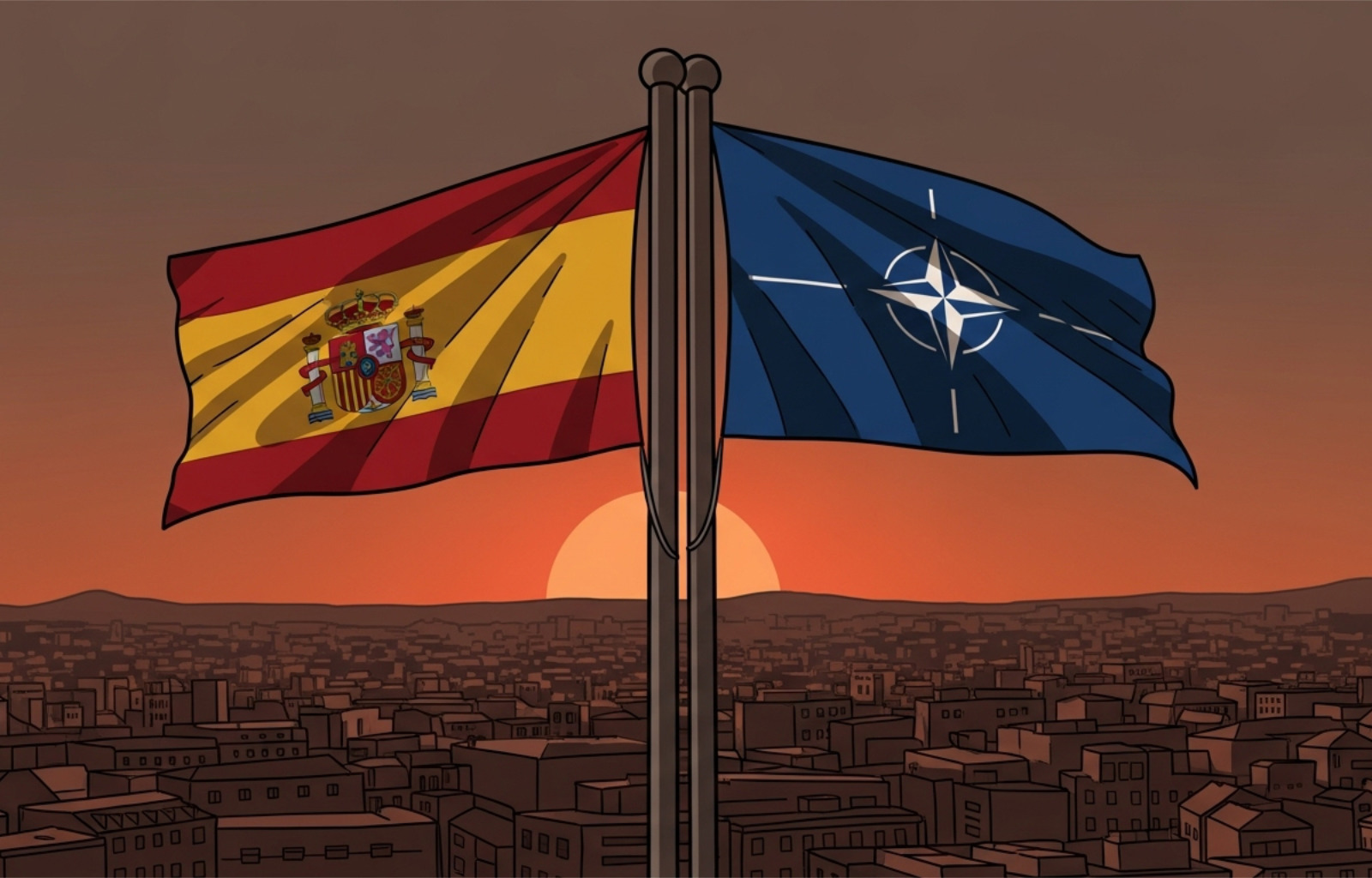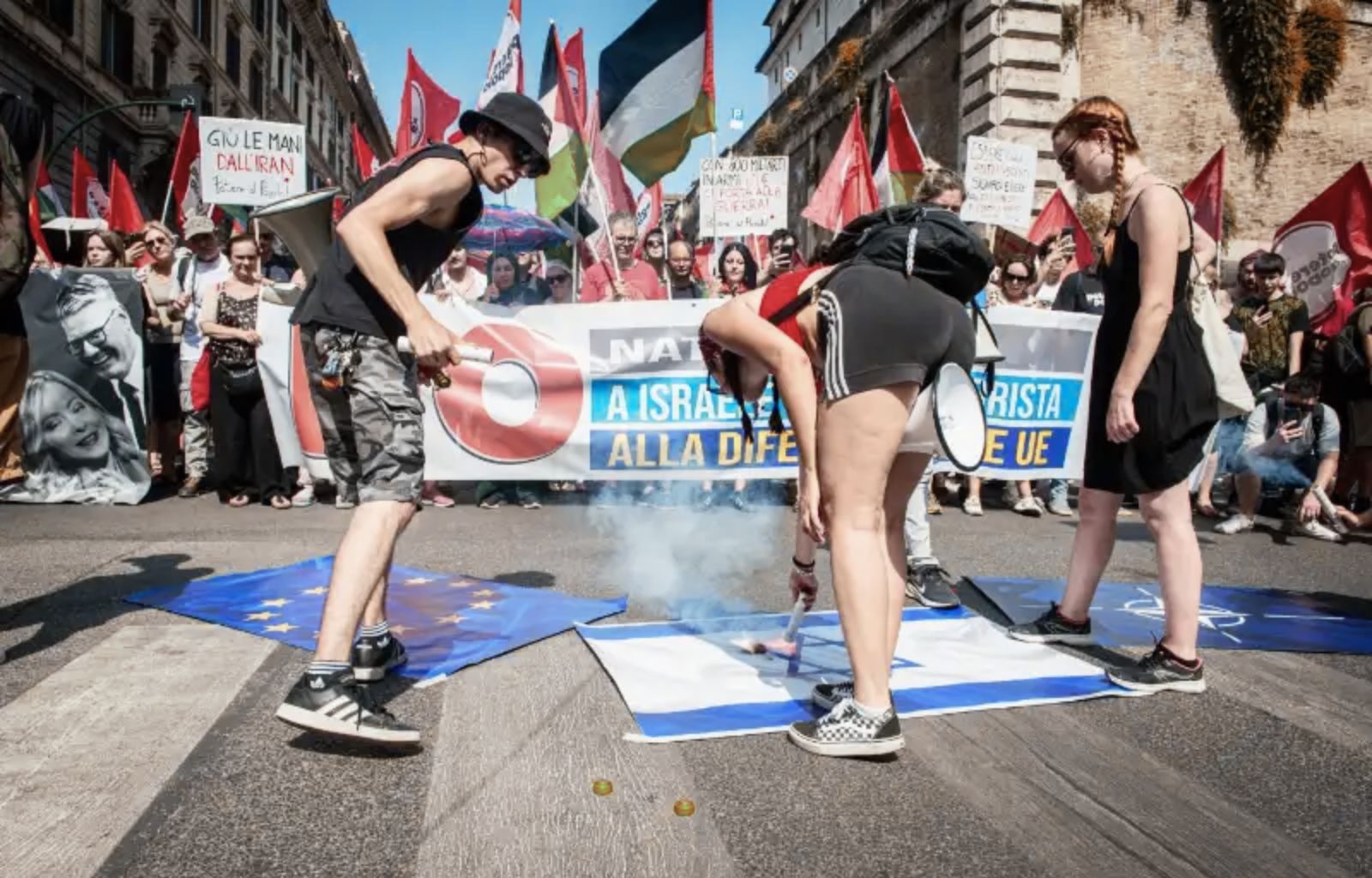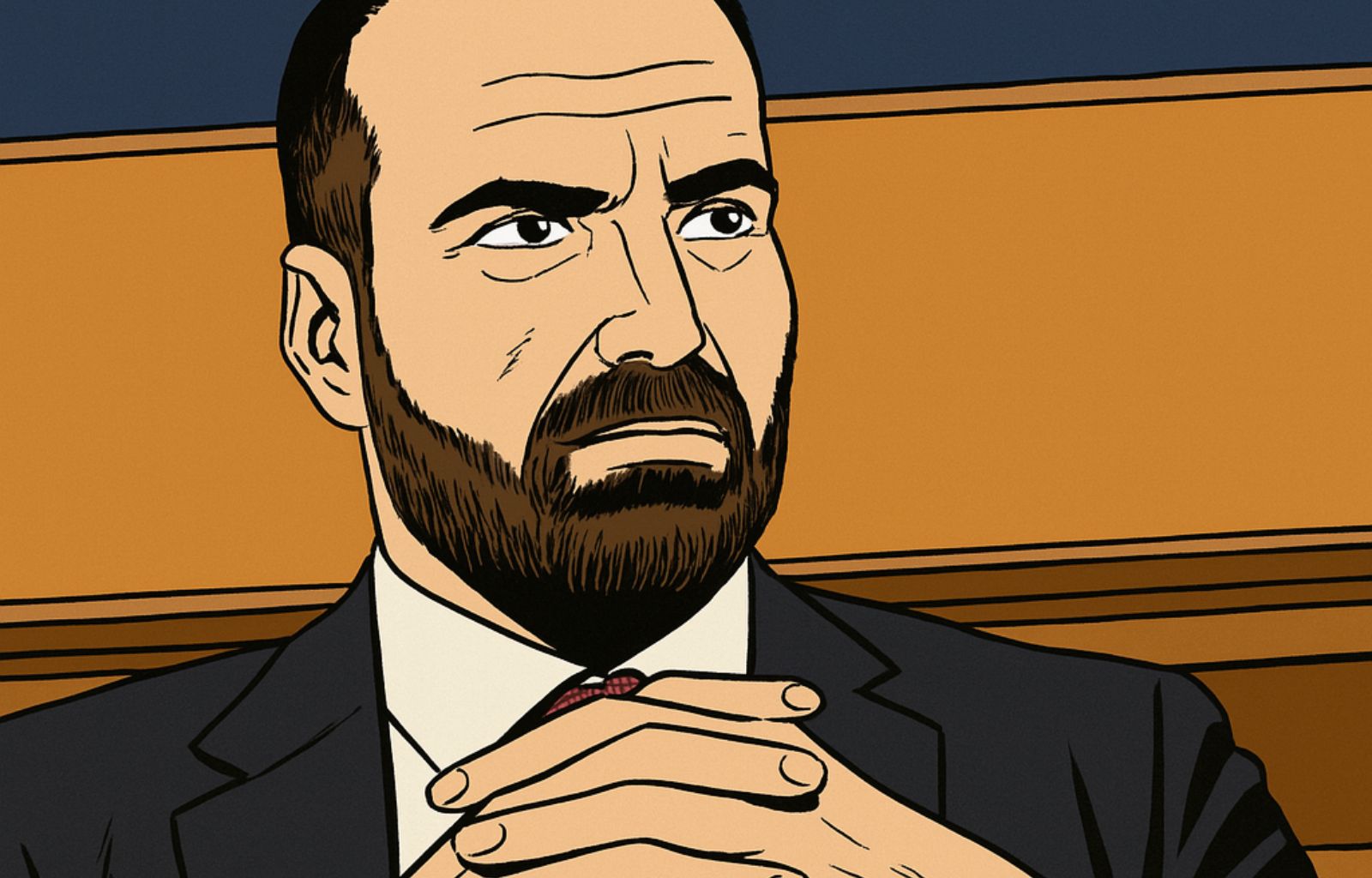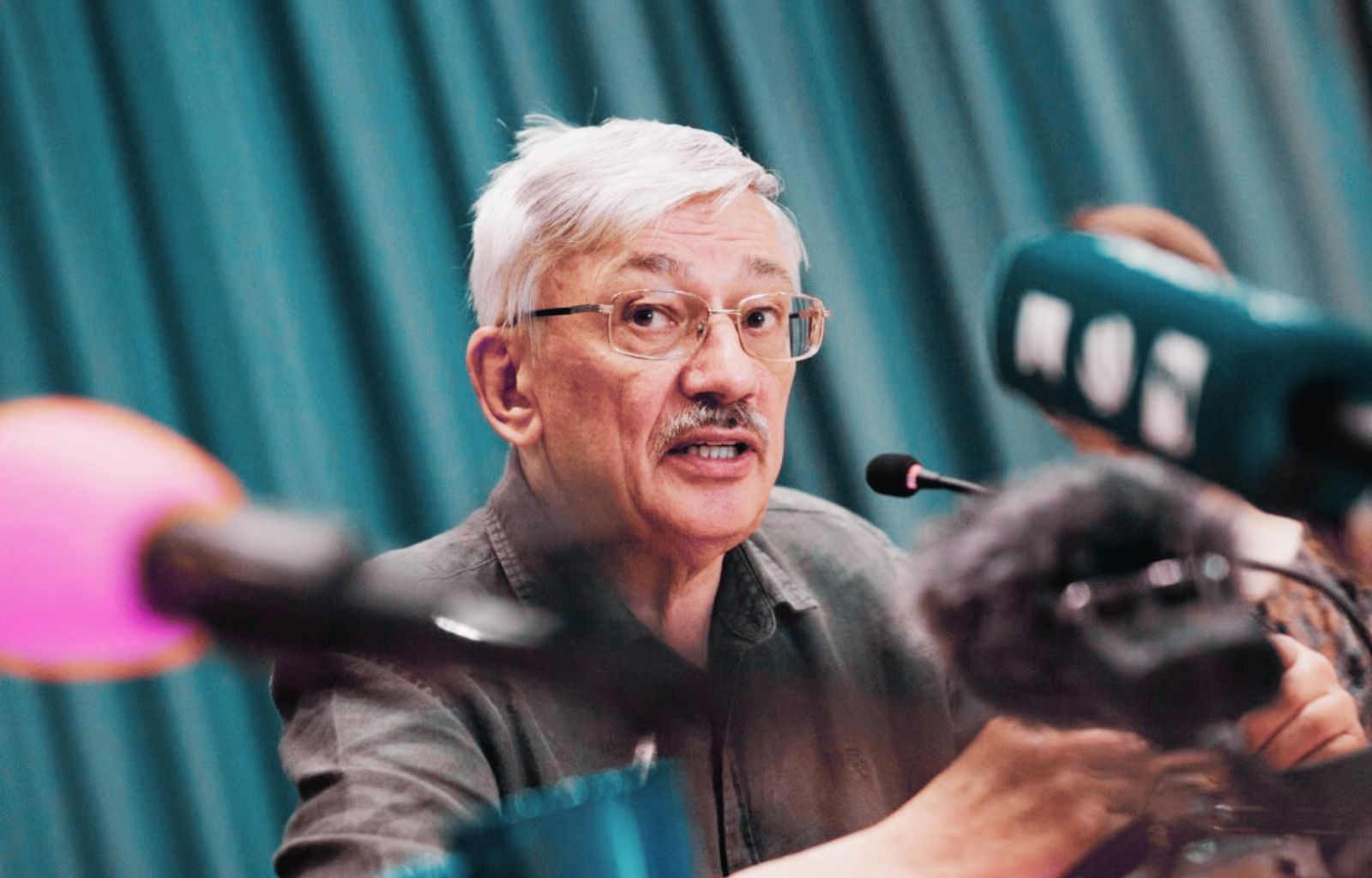Why I believe Ukraine and Israel are fighting two very different conflicts
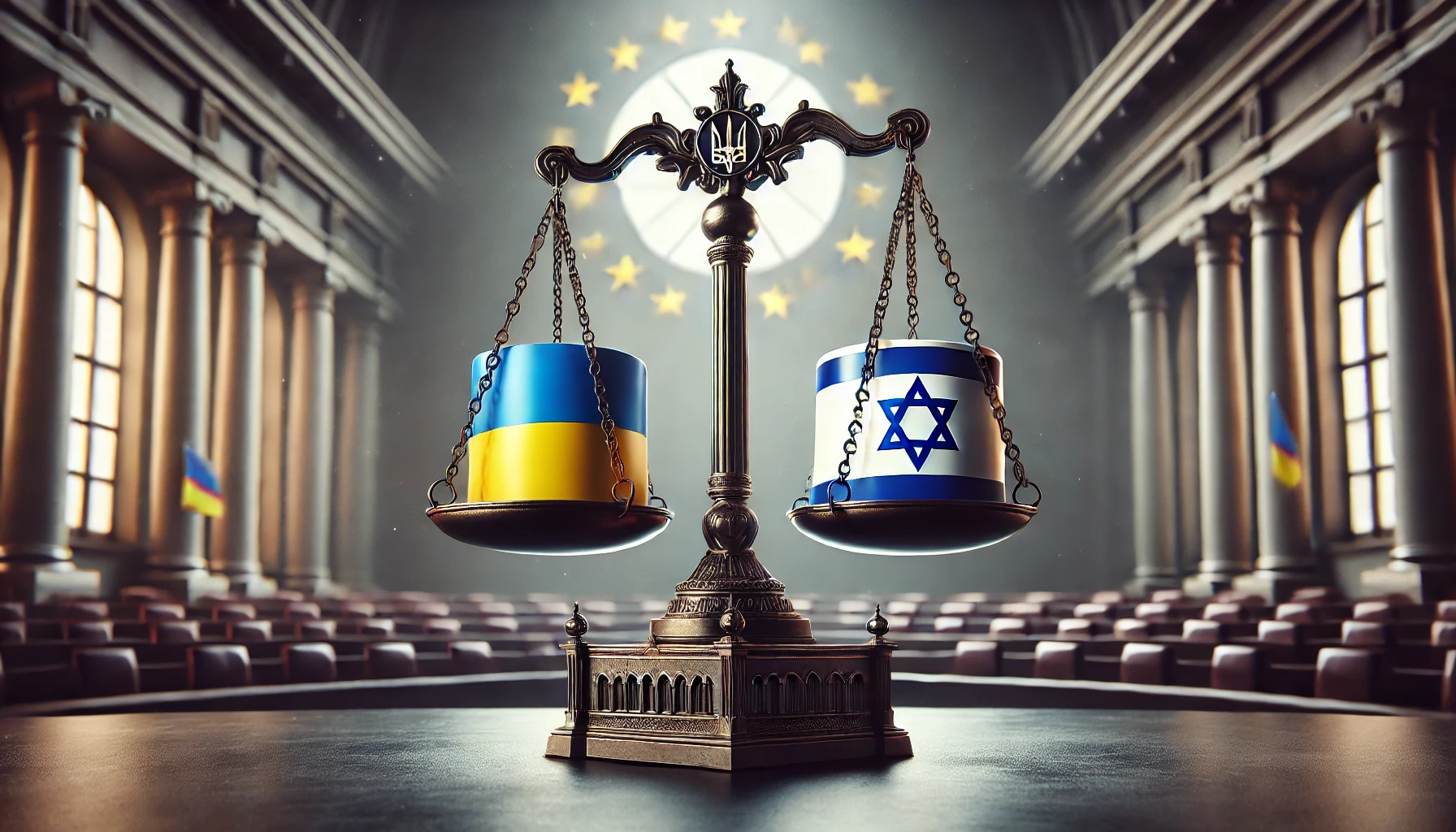
This article offers an alternative perspective to the one published on December 21 in L’Europeista titled: “The Double Standard Between Ukraine and Israel: A European Syndrome” (by Vincenzo D’Arienzo). It is written with no polemical intent, aiming to foster constructive debate on such a complex issue while showcasing the variety and richness of opinions within our editorial team.
Before delving into the differences between the two conflicts, it is important to acknowledge the complexity of the Israeli-Palestinian (and Lebanese) conflict, situated within the broader confrontation between Iran and its allies against Israel.
The Islamic Republic of Iran has repeatedly declared its intention to annihilate Israel and impose its order on the Middle East—a project that cannot be ignored. In this context, it is crucial to firmly stand in favor of Israel, the region’s only true democracy, recognizing the legitimacy of its self-defense without renouncing the right and duty to critique the methods and strategy Tel Aviv has chosen to adopt.
It is also essential to recall the strategic bond between Iran and Russia, an alliance that adds further complexity to the region’s geopolitics. However, with this article, the author seeks to argue why, despite these necessary considerations, it ihttps://amzn.to/40e8Z6fs inappropriate to compare the actions and motives of Ukraine and Israel and, therefore, why it is correct to hold two different standards for these wars.

Radically Different Historical and Political Contexts
The conflict in Ukraine is, first and foremost, a war of national defense. After the annexation of Crimea in 2014 and the full-scale invasion launched in February 2022, Ukraine has faced direct aggression from a foreign power. The Ukrainian resistance is driven by the necessity to safeguard its sovereignty and territorial integrity against an enemy seeking to impose its political, military, and cultural control.
On the other hand, the Israeli-Palestinian conflict is rooted in colonial history and territorial disputes dating back more than a century. The establishment of the State of Israel in 1948 and the subsequent wars with Arab countries have led to a situation of occupation and settlements in Palestinian territories, which is one of the foundational elements of the current conflict. The Palestinian struggle is often interpreted, for many valid reasons, as resistance against prolonged occupation, while Israel views its actions, with equally numerous reasons, as security measures against terrorist and regional threats.
Considering the contextual factor is mandatory for any geopolitical analysis. This does not mean questioning the legitimate existence of the State of Israel, which European states have consistently supported and defended since its founding.
A Matter of International Law
Another crucial aspect is the different legal frameworks produced by these conflicts. In the Ukrainian case, the international community, through bodies such as the United Nations, has widely recognized the illegality of the Russian invasion. The defense of Ukraine is, therefore, fully supported by international law, which protects state sovereignty and self-determination.
In the Israeli-Palestinian context, the situation is more ambiguous and polarizing. Israel claims that all its actions are justified by the right to self-defense, but numerous UN resolutions and international legal opinions have condemned the occupation of Palestinian territories and the methods Israel has used in its warfare as violations of international law.
Shared Struggles and Internal Divisions: The Weight of Public Opinion
Ukrainian resistance is distinguished by its democratic character and the near-unanimous support of the population for its government and defense efforts. Ukrainians are fighting to preserve an international order based on shared rules, opposing aggression perceived as a return to imperialist dynamics.
In Israel’s case, there is internal opposition, with a significant portion of public opinion—including some relatives of the October 7 hostages—criticizing and condemning the actions of their government and the IDF. This contrasts with a narrative of religious and ethnic conflict promoted by Netanyahu’s government and his ministers.
Diversified Strategies: Why the EU Must Respond Flexibly to Global Conflicts
It is thus appropriate for the European Union, in responding to these two conflicts, to adopt different approaches based on the unique characteristics of each situation. This choice is not indicative of an unfair double standard but rather an adaptation to geopolitical, legal, and ethical peculiarities.
In Ukraine’s case, European support is justified by the urgency of defending Ukraine’s stability, fundamental to Europe’s own security, and upholding international law principles against direct Russian aggression.
In the Middle Eastern conflict, historical and political complexity demands a different approach. The EU must balance its diplomatic relations with Israel, recognizing it as the only democracy in the region, with support for Palestinian rights.
The Risks of an Improper Comparison for Ukraine’s Cause
Comparing Ukrainian resistance to Russian aggression with Israel’s war in the Middle East is a mistake, as it risks producing counterproductive effects. While solidarity with Ukraine is generally shared by European governments and public opinion, support for Israel is far more divisive. Associating the two conflicts could compromise the broad but fragile consensus built around Ukraine’s cause, leading parts of European public opinion to disengage or view aid to Ukraine more negatively.
Every War Has Its Story: The Importance of Calibrated Responses
In conclusion, it is crucial to address each conflict in its specificity, recognizing that their historical, political, and cultural dynamics require thorough and distinct analysis. The EU’s decision to adopt differentiated approaches is not a sign of inconsistency but a pragmatic and calibrated response to the diverse realities of the two conflicts. Adapting to the specific circumstances of each case is essential to promoting sustainable and just solutions.

